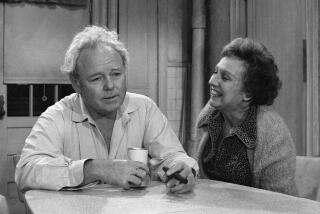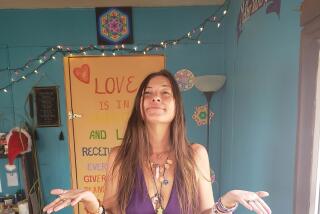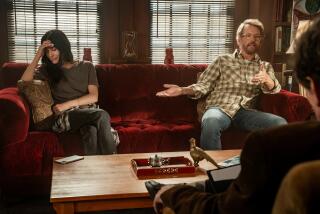‘Everwood,’ ‘East Los High’ writers talk tackling abortion on the small screen
A lot has changed since the titular character of “Maude” decided to have an abortion in 1972. Or has it? That was the question posed to TV writers Rina Mimoun (“Everwood”) and Mauricio Mota (“East Los High”) on the panel “Her Body, Her Choice.”
Presented by USC’s Hollywood, Health & Society organization, the panel, part of the ATX Festival here, specifically discussed the portrayal of abortion, and more broadly women’s reproductive health, on TV today.
“The goal for all of it – network, streaming, everything – is to stop making it the one-off episode or the arc,” Mimoun said. “It would be nice if it was just part of the conversation and didn’t have to be so special and so earnest and so important.”
In Season One, “Everwood” tackled the subject head-on when an 18-year-old girl (Kate Mara) went to Treat Williams’ Dr. Abbott to get an abortion. Meanwhile, Mota’s “East Los High” featured several varying conversations and depictions of abortions.
“It’s about controlling women,” Mota said about the lack of abortion storylines on television. “Abortion is just one of the facets of society’s search to control women.”
Mimoun was optimistic about a change in that conversation, brought on by the Harvey Weinstein allegations and the subsequent Me Too movement. “I’m not sad that Time’s Up is happening and that Me Too is happening, that we’re talking about consent,” she said. “It certainly was great in that it started a conversation about female sex and pleasure.”
When the topic of other shows came up, the duo praised “Scandal” and “Crazy Ex-Girlfriend” for their depictions. However, Mimoun was critical of NBC’s “This Is Us” for not having Randall (Sterling K. Brown) and Beth (Susan Kelechi Watson) discuss abortion as a possibility when she thought she had an unplanned pregnancy at the end of Season One.
“I thought, ‘What a bizarrely missed opportunity,’” she said about the drama, on which creator Dan Fogelman serves as showrunner. “I do wonder if that was a woman’s show would that scene on the floor of the hotel room have been different and I think maybe.”
She posited the fear of upsetting advertisers as another possible reason. “There is definite fear,” she said. “If I don’t say anything, I can’t get in trouble.”
However, Mimoun was also positive about “Girls’” portrayal of an abortion. “It was a good story that included the male perspective on abortion and I think it’s doing more stuff like that would be helpful,” she said.
Mimoun encouraged writers to embrace their potential ability to educate viewers on the tough topic, particularly young viewers, as “Everwood” did back in 2003 when it aired on the young-skewing WB Network.
“Everyone is so afraid to be earnest or afraid to be like preachy or teach-y. There are so many things and they’d rather be salacious,” Mimoun said. “They’re trying to shock you into watching their shows and there aren’t as many people that are [embracing] the challenge of educating. It’s an opportunity that we have.
“You don’t have to think of it as this burden,” she continued. “It’s an amazing chance and every time you waste it or you blow it or you go in the other direction and message them terribly for no reason except that you want the ratings, shame on you is what I say.”
The lack of female writers – a hot topic this week after Variety received backlash for planning a writers’ panel with 11 men and one woman – also came up as a potential source of blame for the lack of abortion portrayals on the small screen.
“A lot of times, it doesn’t affect men in their minds in the same way so it’s either fear-based, it’s a little bit of apathy, it’s that, ‘It’s not my problem,’” Mimoun said.
The larger issue of diversity and better representation was one that both writers pointed to. “The one thing we can do is just try to have as much diversity in every possible way onscreen,” Mimoun said. “When you’re casting a show and putting something on air, it’s just, think bigger and go broader and reflect the world that we live in.”
Mona was confident shows, and networks, would be rewarded for taking a closer look at underrepresented segments of society. “If you make shows that represent society more, people will watch more and they will buy the … action figure,” he said.
This is where I explain why ‘Law & Order’ is the best TV show ever made.
ALSO: Why it should be revived.
More to Read
The complete guide to home viewing
Get Screen Gab for everything about the TV shows and streaming movies everyone’s talking about.
You may occasionally receive promotional content from the Los Angeles Times.







